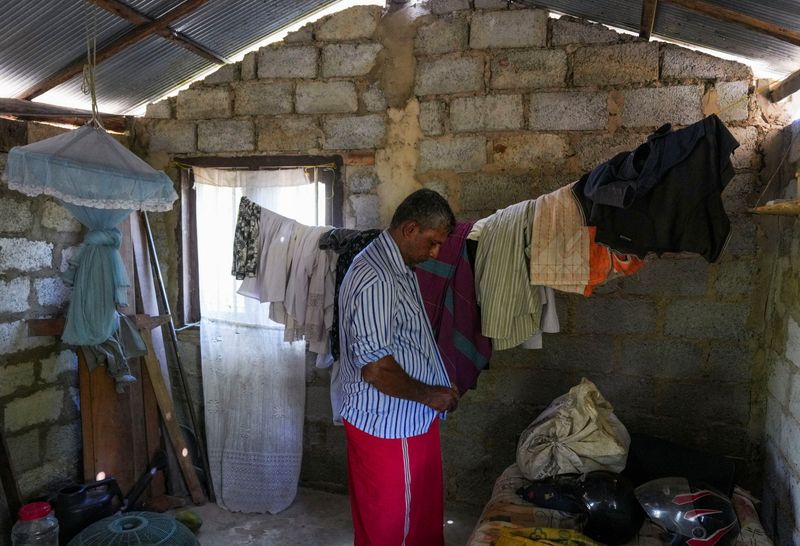By Uditha Jayasinghe
HAMBANTOTA, Sri Lanka (Reuters) -Sri Lanka votes to elect a new parliament this week in a snap general election called by its Marxist-leaning president who wants a fresh mandate in the legislature to drive economic reforms in the debt-ridden island nation.
Anura Kumara Dissanayake was elected president of the South Asian country in September but his National People's Power (NPP) coalition had just three of 225 seats in parliament, prompting him to dissolve the legislature and seek a fresh mandate there for his policies.
Dissanayake, an outsider of the family parties that have dominated Sri Lankan politics for decades, swept to power promising change as the country emerges from a crushing financial crisis. Millions of voters put faith in his graft-fighting pledge and vows to bolster a fragile economic recovery.
"In past elections, people did not have confidence in us but in September people gave us victory and proved that we are a winning party and we can form a government," Dissanayake said during a campaign rally on Sunday.
"The next task is to unite people from the four corners of this country and build a powerful people's movement."
Sri Lankans were hit hard by the 2022 economic crisis, which was triggered by a severe shortfall of foreign currency that added to problems caused by the COVID-19 pandemic.
Buttressed by a $2.9 billion bailout programme from the International Monetary Fund, the economy has posted a tentative recovery, but the high cost of living is still a critical issue for many voters.
Dissanayake aims to change the revenue goals set under the IMF programme to reduce high income taxes and free up funds to invest in welfare for millions of Sri Lankans hardest hit by its financial crisis.
Investors worry that Dissanayake's desire to revisit the terms of the country's IMF bailout could delay future disbursements, and make it harder for Sri Lanka to hit a crucial primary surplus target of 2.3% of GDP in 2025 set under the programme.
Opposition Leader Sajith Premadasa's party, Samagi Jana Balawegaya, is expected to be NPP's main challenger alongside the New Democratic Front - a breakaway group from the party of the Rajapaksa family and backed by former president Ranil Wickremesinghe.
BACKING FOR DISSANAYAKE
Voters who backed Dissanayake in September are expected to stick by him in the general election as well.
In Hambantota - a southern district of about 680,000 people largely from the farming and fishing communities - Sudath Kumara and his wife, Nilmini Kumari, voted for Dissanayake in September's presidential election. They plan to do the same on Thursday by backing his coalition NPP.
Expenses are currently five times the 3,000 rupees ($10) her husband earns in a month by doing odd jobs, said Kumari, standing in their one-room house built of cement bricks.
"We grow as much food as we can, but we still have to pay for fuel, water, transport and tuition for three children," Kumari said. "There is no electricity. Kids try to finish their homework during daylight hours, or they study by lamplight."
NPP candidate Athula Welandagoda, 51, is confident he will win one of the seven seats up for grabs from Hambantota with the backing of voters such as Kumara and his wife.
"There has been a deep evolution in Sri Lanka where people have moved away from standard parties and want to see genuine change," Welandagoda said.
The Rajapaksa family, who hail from Hambantota and whose cohort of brothers gave Sri Lanka two former presidents during a dozen years in power, saw their political fortunes wane after the financial crisis sparked a massive public uprising that ousted former President Gotabaya Rajapaksa in 2022.
For the first time in 88 years, a member of the Rajapaksa family is not contesting an election although Namal Rajapaksa, son of former President Mahinda Rajapaksa, is leading the campaign for their Sri Lanka Podujana Peramuna party.

Namal received only 2.57% of votes polled in the presidential election.
"We will do better in this election. I am confident we can rebuild this party with a new political generation... and the SLPP will transform into a major political force in the near future," Namal said at a meeting last week.